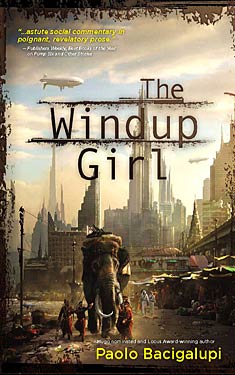Aaaand now that I have your attention.
That's exactly what I mean. Well, almost exactly. "Every" is a bit of an exaggeration, since it's hard to say that every individual member of any particular group wants one thing. There's always exceptions (like sociopaths for example). But given that caveat, and the context I'll shortly be giving you, I'm pretty sure that what I said is 100% true.
So, onto that all important context. If you're the sort of person who reads this blog, then you
probably know what a complementarian is. Nevertheless, I'll give you the short of it. A complementarian is someone who thinks that there is an essential difference between men and women, and that this essential difference in some way suits them to different roles (that
complement each other). Just what these different roles are can very wildly from one complementarian to another, but in general I've found it's not in terms of, say, work. I've rarely met a complementarian who just thought women should stay at home.
1 More often, the important axis for explaining the essential differences purported to exist between men and women is marriage.
Frequently, the details of this essential difference are couched in mythic terms. In everything from
Wild at Heart to the unintentionally ironic organization "Lancelot Lives" (which itself is apparently no longer alive
2), the difference perceived between men and women is painted in vivid pictures of knights and princesses. This, they say, is no accident because those tales aren't accidental, they portray something essential about humankind. Men, you see, are knights, or at least desire to be, and women are princesses. The men want to fight battles, rescue the weak and defend there homes. Women want to be rescued, and... um.. be beautiful... and some other stuff I guess. Both parties, they say, want love, but love of a different kind. The men want their strength and leadership to be respected. The women want to be cherished.
And I say that's a load of crock. Of course men want respect for what they've accomplished, but so do women. Men want to be cherished too. I don't there's a man in the world who, when faced with darkness, doesn't desire to be rescued, held, shown nurturing love. It's not always a romantic desire to be sure. Sometimes they just want it from friends, sometimes from their parents, sometimes from God. But they want it.
Moreover, as a Christian I'm inclined to say this is a
good thing. The faith we practice teaches us that we are dependent upon God, that we are literally
nothing without Him. Every Christian, male or female, should experience points in their life where they fall on their knees and cry out to God for rescue, beg Him to come down, wrap His wings around them and cherish them. Moreover, every Christian, after having been cherished by God and fed at His table, should find the strength to gird themselves for the battle of faith and go out into the world as knights for the gospel, spreading not violence, but the very cherishing love they have been given. So, in short I agree with the complementarians that the myth of the knight and the princess is no accident. It tells us something about ourselves, but it isn't a lesson about gender. Every man just wants to be a princess, and every woman wants to be a knight.
3
___________________________________
1. Though most are opposed to women in ministry.
2. At least I cannot find it anymore, but I saw it once, I swear.
3. None of this is to say I don't think there's any difference between men and women. At the very least, our bodies are different, and I think that's important. I don't know what the difference is though, and I certainly think it's problematic to make it a matter of roles. Especially when those roles involve terms like "submission" and "leadership".



